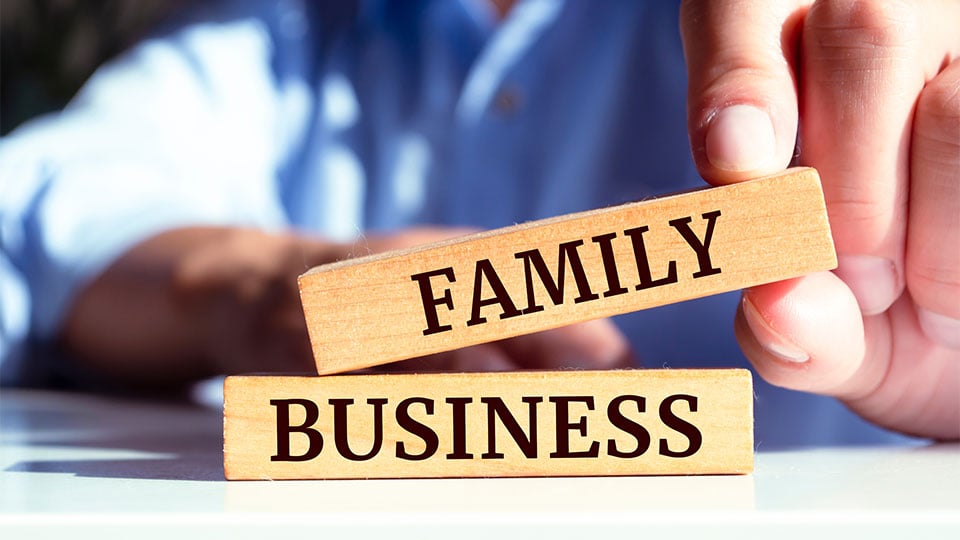In the intricate tapestry of the global economy, Family Business remains a profoundly influential and enduring model, often serving as the very backbone of local economies and even national prosperity. Far more than just a legal structure, a family business is a unique entity where kinship, shared values, and often a deep-rooted sense of legacy intersect with the demands of commercial enterprise. Sustaining these ventures across generations involves a delicate balance of emotional bonds and astute strategic management, presenting both unparalleled strengths and distinctive challenges. Understanding the dynamics of family businesses – their unique advantages, common pitfalls, and the strategies required for their long-term survival – is crucial for anyone involved in their operation, succession planning, or general appreciation of diverse business models.
The Unique Fabric of Family Enterprise

A family business is not merely a business owned by a family; it’s an organization where family members exert significant influence over the management and strategic direction, often with the intention of passing it down through generations. This intertwining of family and firm creates a distinct operating environment.
A. Defining Characteristics of Family Businesses
Several hallmarks distinguish family businesses from their non-family counterparts, shaping their culture, decision-making, and long-term outlook.
- Generational Intent: A defining characteristic is the active desire and plan to transfer ownership and management to the next generation of the family. This long-term perspective often influences investment decisions and strategic planning.
- Family Influence: Family members, whether through ownership, board positions, or active management, have a significant say in the strategic direction and daily operations. This influence extends beyond just capital contributions.
- Shared Values and Culture: Family businesses often operate with a strong set of core values, traditions, and a distinct culture that is deeply rooted in the family’s heritage. These values can be a powerful unifying force and a source of competitive advantage.
- Long-Term Orientation: Unlike publicly traded companies that might be driven by quarterly results, family businesses often prioritize long-term sustainability, reputation, and legacy over short-term financial gains. This can lead to more patient capital and investment in enduring assets.
- Trust and Commitment: Within the family, there’s often an inherent level of trust and commitment that can accelerate decision-making and foster resilience during challenging times.
- Flexibility and Agility: In smaller family businesses, decision-making can be more agile, unencumbered by layers of bureaucracy sometimes found in large corporate structures.
B. The Pervasive Impact on Economies
Family businesses are not outliers; they are a dominant force globally, contributing significantly to employment, innovation, and GDP.
- Economic Backbone: In many countries, family businesses account for a substantial majority of all enterprises, ranging from small local shops to large conglomerates. They are major employers and contribute significantly to national wealth.
- Job Creation: They are significant creators of employment, often providing stable, long-term jobs within communities. Their focus on long-term sustainability can lead to greater job security than in some publicly traded companies.
- Community Roots: Family businesses are typically deeply embedded in their local communities, often investing in local initiatives, supporting other local businesses, and fostering a strong sense of civic responsibility.
- Resilience During Crises: Studies often show that family businesses can be more resilient during economic downturns, partly due to their long-term focus, lower reliance on external financing, and strong internal cohesion.
- Innovation: While sometimes perceived as traditional, many family businesses are highly innovative, leveraging their deep industry knowledge, patient capital, and direct connection to customers to develop new products and services.
Strengths and Competitive Advantages
The unique structure of family businesses bestows upon them distinct advantages that can be leveraged for sustained competitive success.
A. Long-Term Vision and Patient Capital
A fundamental strength lies in their ability to prioritize enduring growth over immediate financial gratification.
- Focus on Legacy: The desire to pass a thriving business to future generations encourages strategic decisions that prioritize long-term sustainability, brand reputation, and enduring relationships over short-term profits.
- Reduced Pressure from External Shareholders: Unlike public companies, family businesses are less beholden to the demands of quarterly earnings reports or the whims of external shareholders, allowing for more patient investment cycles and strategic risks.
- Strategic Stability: A consistent leadership vision, often spanning decades, provides stability in strategy and culture, which can be a competitive advantage in volatile markets.
- Investment in Relationships: A long-term perspective encourages deep, trust-based relationships with employees, customers, suppliers, and the local community, fostering loyalty and a strong social capital.
B. Strong Culture and Values
The family’s shared values often permeate the business, creating a unique and powerful organizational culture.
- Shared Purpose: A common sense of purpose and commitment derived from family ties can lead to high levels of dedication and work ethic among family members in the business.
- Employee Loyalty: Employees, both family and non-family, often experience a stronger sense of belonging and loyalty in family businesses due to the perceived personal connection, stable employment, and a more caring environment.
- Reputation and Trust: A well-managed family business can build a strong reputation for integrity, quality, and reliability over generations, creating a powerful brand asset that attracts customers and talent.
- Agility in Smaller Scale: For smaller family businesses, decision-making can be quicker and less bureaucratic, allowing for rapid adaptation to market changes.
C. Financial Prudence and Resilience
Family businesses often exhibit characteristics that make them financially robust and resilient in challenging times.
- Conservative Financial Management: A tendency towards lower leverage, less reliance on external debt, and a focus on reinvesting profits back into the business often leads to greater financial stability.
- Faster Decision-Making in Crisis: In times of crisis, the high trust and strong bonds within the family can facilitate rapid decision-making, allowing the business to pivot quickly and effectively.
- Cost Control: A deep understanding of the business’s finances and a personal stake in its success often lead to vigilant cost control and a focus on efficiency.
- Personal Investment: Family members’ personal wealth and reputation are often tied to the business, creating a powerful incentive for diligent management and long-term success.
Distinct Challenges and Potential Pitfalls
While family businesses boast unique strengths, the very intertwining of family and business also creates distinct challenges that, if unaddressed, can lead to conflict and failure.
A. Succession Planning Complexities
Transferring leadership and ownership across generations is arguably the most critical and often most challenging aspect of family business.
- Choosing the Right Leader: Selecting a successor based on competence and merit rather than birth order or personal preference can be fraught with emotional difficulty and internal conflict.
- “Founder’s Syndrome”: The original founder’s reluctance to relinquish control can stifle innovation, alienate the next generation, and prevent the business from adapting to new market realities.
- Preparation and Training: Ensuring the next generation is adequately prepared, both in terms of skills and experience, requires deliberate and long-term planning, often involving external education and work experience outside the family firm.
- Fairness vs. Equality: Distributing ownership and roles fairly among family members, especially those not actively involved in the business, can lead to disputes and resentment.
- Estate Planning: Complex legal and tax implications related to wealth transfer and inheritance require careful and professional estate planning to ensure smooth transitions and avoid financial strain on the business.
B. Family Dynamics and Conflict
The emotional intensity of family relationships can spill over into business decisions, leading to unique forms of conflict.
- Blurring of Lines: The inability to separate family issues from business issues can lead to emotional decision-making, favoritism, and unresolved conflicts that fester and undermine professional operations.
- Nepotism and Fairness: Perceptions (or realities) of favoritism towards family members can demotivate and alienate non-family employees, impacting morale, retention, and overall productivity.
- Sibling Rivalry: Competition among siblings or cousins for power and influence can create destructive internal battles that jeopardize the business’s stability.
- Communication Breakdown: Open and honest communication can be challenging within families, especially when difficult business decisions or performance issues need to be addressed.
- Lack of Professionalism: Sometimes, the informal nature of family relationships can lead to a lack of professional rigor in decision-making, governance, or performance evaluation.
C. Professionalization and External Talent
A critical challenge is balancing family involvement with the need for professional management and external expertise.
- Resistance to Outside Expertise: Family businesses can sometimes be resistant to bringing in non-family professionals for senior management roles or independent board members, fearing a loss of control or cultural dilution.
- Limited Talent Pool: Restricting leadership roles solely to family members might limit the talent pool available, potentially overlooking highly qualified external candidates who could bring valuable skills and perspectives.
- Governance Structures: Developing robust governance structures, such as independent boards of directors and family councils, can be challenging but essential for objective decision-making and managing family-business interfaces.
- Succession Challenges for Non-Family Employees: Highly competent non-family employees may leave if they perceive a “glass ceiling” for leadership positions.
D. Adaptation and Innovation
While long-term vision is a strength, it can sometimes be accompanied by a resistance to change or innovation.
- Risk Aversion: A strong desire to preserve legacy can sometimes lead to excessive risk aversion, preventing necessary investments in new technologies or market shifts.
- Resistance to Modernization: Family traditions can sometimes clash with the need for digital transformation, adoption of new business models, or changes in organizational structure.
- Lack of Diverse Perspectives: If leadership is exclusively family-based, the business might suffer from a lack of diverse viewpoints, potentially leading to blind spots in strategy or market understanding.
Strategies for Sustaining Family Business Legacies

To overcome their inherent challenges and truly thrive across generations, family businesses must proactively implement specific strategies that balance family harmony with business professionalism.
A. Robust Governance and Clear Structures
Establishing clear rules and structures is paramount for managing the family-business interface effectively.
- Constitutions and Charters: Develop a family constitution or charter that outlines values, roles, ownership principles, succession processes, and conflict resolution mechanisms. This formalizes expectations.
- Independent Board of Directors: Appoint a truly independent board with external experts who can provide objective oversight, strategic advice, and accountability, mitigating family biases.
- Family Council: Establish a family council as a formal forum for family members (whether involved in the business or not) to discuss family values, philanthropic initiatives, and the family’s relationship with the business, separate from operational decisions.
- Clear Roles and Responsibilities: Define clear roles, responsibilities, and reporting lines for all employees, family and non-family alike, based on merit and competence.
- Transparent Communication Channels: Establish formal and informal channels for open, honest, and respectful communication about both business and family matters, keeping them distinct where possible.
B. Strategic Succession Planning
Proactive and well-managed succession is the linchpin for generational survival.
- Long-Term Planning: Begin succession planning early – often a decade or more before the planned transition – to allow ample time for preparation, mentorship, and assessment.
- Competence over Kinship: Base successor selection primarily on merit, skills, experience, and leadership capabilities, not solely on birth order.
- External Experience for Next Gen: Encourage or require prospective family leaders to gain significant work experience outside the family business to bring fresh perspectives, diverse skills, and external credibility.
- Mentorship and Training: Implement formal mentorship programs, professional development, and leadership training for potential successors within the family.
- Professional Advisers: Engage independent legal, financial, and family business consultants to guide the succession process, mediate conflicts, and ensure fair and tax-efficient transitions.
C. Professionalization and Talent Management
Balancing family involvement with the need for professional excellence is critical for growth.
- Merit-Based Hiring: Implement rigorous, merit-based hiring processes for all roles, including those for family members.
- Fair Performance Evaluation: Establish objective performance evaluation systems for all employees, family and non-family, with clear metrics and regular feedback.
- Attracting Non-Family Talent: Create attractive career paths and clear growth opportunities for highly competent non-family employees, ensuring they don’t hit a “glass ceiling.”
- Fair Compensation: Ensure compensation and benefits packages are competitive and based on market rates and performance, not just family status.
- Training for All: Provide continuous training and development opportunities for all employees, fostering a culture of learning and professional growth.
D. Adapting to Change and Fostering Innovation
While honoring tradition, family businesses must embrace evolution to remain competitive.
- Embrace Digital Transformation: Actively invest in and adopt new technologies (e.g., AI, data analytics, e-commerce, cloud computing) to enhance efficiency, customer experience, and competitiveness.
- Foster a Culture of Innovation: Encourage experimentation, risk-taking, and continuous improvement. Create mechanisms for employees (family and non-family) to propose and develop new ideas.
- Seek External Perspectives: Regularly engage with industry experts, consultants, and independent board members to gain fresh insights and challenge internal assumptions.
- Market Responsiveness: Stay attuned to market trends, customer demands, and competitive landscapes, being willing to pivot strategies when necessary.
- Succession of Mindset: Beyond individual leaders, ensure the “succession of mindset,” where future generations are open to new ideas and methods, even if they differ from the founders’.
The Family Business Ecosystem
A growing ecosystem of resources exists to support family businesses in navigating their unique challenges and ensuring long-term success.
A. Academic Programs and Research
- Family Business Centers: Many universities globally have dedicated centers for family business studies, offering research, executive education programs, and forums for sharing best practices.
- Specialized Courses: Business schools increasingly offer courses on family business management, governance, succession planning, and conflict resolution tailored to family dynamics.
B. Professional Advisors and Consultants
- Family Business Consultants: Specialists who understand the interplay of family and business, offering expertise in governance, succession, conflict resolution, and strategic planning.
- Legal and Tax Advisers: Essential for structuring ownership, estate planning, and navigating complex inheritance laws.
- Financial Advisers: Guiding investment strategies, wealth management, and capital allocation for both the family and the business.
C. Associations and Networks
- Family Business Associations: Organizations (e.g., FBN International, regional chapters) that provide networking opportunities, peer learning, and resources specifically for family business owners and leaders.
- Peer Groups: Forums where family business leaders can share experiences, challenges, and solutions in a confidential setting.
Conclusion
Family Business is a unique and powerful economic force, characterized by a potent blend of personal commitment, enduring values, and a profound desire for sustaining legacies. While they possess inherent strengths such as long-term vision, strong culture, and financial prudence, they also face distinct challenges, particularly in the complex areas of succession planning, family dynamics, and the imperative for professionalization.
However, by proactively implementing robust governance structures, engaging in strategic succession planning, fostering a culture of meritocracy and innovation, and leveraging external expertise, family businesses can not only overcome these hurdles but also unlock their full potential for multi-generational success. The enduring power of these enterprises lies in their ability to adapt, evolve, and skillfully weave the threads of family values with the demands of modern commerce, proving that a strong family foundation can indeed build a lasting economic empire. The future of many economies hinges on the continued vitality and success of these unique, legacy-driven ventures.












